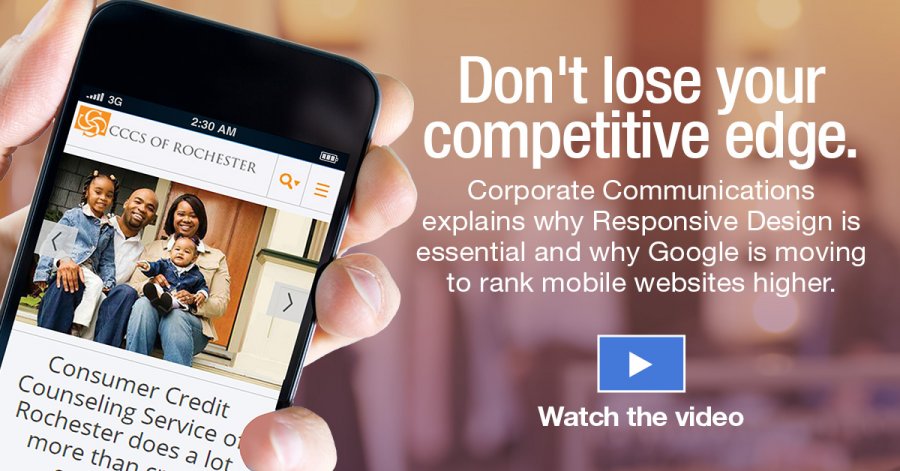Google's primary goal for its search engine is to bring the best results on any given keyword search for those who use it. The general theory is (though admittedly very simplified), the better and more relevant the result, the more people that will use Google search, and therefore the more people who will see and click on Google AdWords ads, increasing Google's revenue and ultimately stock.
Google Takes Mobile Seriously
With mobile being, and becoming more so, such an important part of the user experience, Google has for some time now endorsed the use of some type of mobile website whether it be a separate mobile-friendly website or responsive website design. Here are some reasons why - in a study by Google, conducted by an independent firm:
- 75% of mobile device users prefer a mobile friendly site
- 48% felt company websites that aren't mobile friendly, didn't care about their business
- 50% of people said that even if they like a business, they will use them less often if the website isn't mobile-friendly
The search engine has stated, as long as two years ago, that sites that are not mobile friendly or poorly optimized for mobile will not rank as well in mobile search results. Now they have gone a step further and on February 26, stated that "starting on April 21, we will be expanding our use of mobile-friendliness as a ranking signal… this change will affect mobile searches in all languages… and will have a significant impact in our search results."
Google has already been identifying whether a website is mobile friendly in their search results. The announcement that mobile will become a ranking factor only emphasizes the importance of and need for a mobile-friendly website. The statistics don’t lie, mobile use – whether smartphone, tablet or some other device - is growing by the day.
Responsive Design
Google's preferred configuration for developing a mobile-friendly website is responsive design. This is in part because responsive design allows for the same URL and the same html, both which make it simpler for Google to index, and for visitor usability. Responsive design utilizes the same content no matter what type of device is used and renders the display differently for easy readability. This also makes it easier to maintain and update.

The Time is Now
Want to see if your site is mobile-friendly? Take Google's Mobile-Friendly Test. If not, the time is now to convert your website to responsive design! The longer you wait to convert your website, the more you risk hurting your positioning in Google. We will work with you to make the transition as smooth as possible and the move to responsive design will only enhance the overall look of your site and more importantly, improve user experience.
Find the author on social media:
+Elissa Mitchell
@ezmitchell


